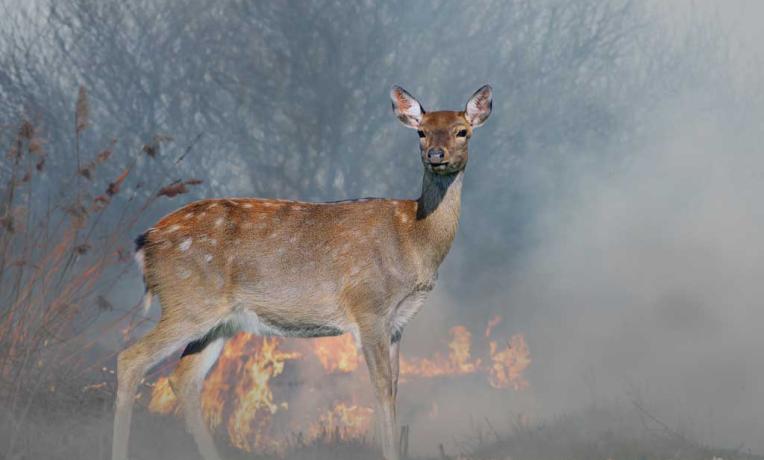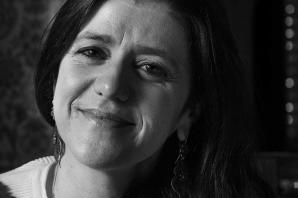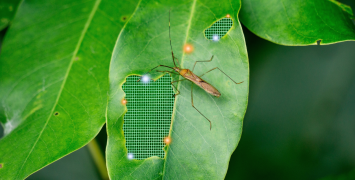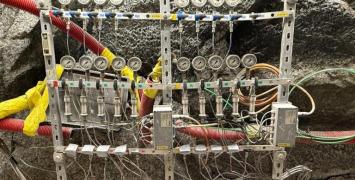Wildfire recovery: Lessons from animals

The sight of Portugal on fire, seen from an airplane window while landing in Lisbon, will never leave Verónica Policarpo’s mind. The wildfires that ravaged Portugal in 2017 left a trail of death and devastation behind. With a background in sociology and a love for animals, Policarpo delved into the scientific field of human-animal studies. This led her to conceive the idea for the project ‘ABIDE: Animal Abidings: recovering from disasters in more-than-human communities’, which was inspired by her previous research in human-animal studies and the aftermath of the deadly fires.
Policarpo observed that the media coverage of these violent wildfires mostly focused on human and economic losses, neglecting the impact on animals while they were also severely affected. She concluded that the media’s portrayal of animals was not representative of their true experiences. “The real flesh and blood animals were missing”, she says. “If we include animals’ perspectives in disaster management, we can move away from a human-centric approach towards a more inclusive model of governing disasters. In this way, animals would become full stakeholders and co-producers of our knowledge of wildfires.”
Animals’ perspectives
ABIDE aims to broaden our understanding of how multispecies communities recover from the devastating impact of wildfires by including the perspectives, experiences, and stories of animals. Drawing on contributions from sociologists, anthropologists, ethologists, biologists, and geographers, the project explores the resilience and regenerative capacities of these communities through the lens of nonhuman animals.
The project focuses on the recovery phase following wildfires, which begins once the fire is extinguished, and the landscape starts to regenerate. Fieldwork will start in 2024 and focuses on three case studies: Brazil, Australia, and Portugal. Despite their geographic differences, what do these three countries have in common?
According to Policarpo, “The past years have been traumatic for these countries when it comes to wildfires. Brazil and Australia are home to a rich fauna and are important biodiversity hotspots. Both countries have indigenous populations with valuable knowledge on coexisting with other species and managing fires, which we want to bring in into this research. Despite being smaller in size, Portugal is an EU country and must comply with EU rules on nature protection, making it is part of a bigger structure. Additionally, Portugal and Australia’s wildfires share some similarities when it comes to land management and the prevalence of eucalyptus: a tree that is native to Australia and common in Portugal,” Policarpo explains.
A more than human approach
Direct observation of animal interactions with their territory and humans will be key, says Policarpo. “My objective is to go out into the field and observe the behaviour of certain species and understand their responses when their habitats are destroyed. Achieving this goal will require a multidisciplinary approach.”
Using ‘multispecies ethnography’, Policarpo and her team will observe how humans and animals survive wildfires and rebuild their cultures in their aftermath. “Let’s take bees as an example”, she says. “Bees have a language of their own; they use a complex dance to communicate about food. In this way, bees offer an opportunity to learn more about how to cope with the risks of starvation that follow a destructive fire. In Pinhal Interior, Portugal, where the mega-fires of 2017 swept away almost all living fauna, some bee swarms have been observed to build their hives in the windows of human houses, indicating how they adapt to the loss of trees and natural habitats.”
The selection of the species to be studied in the project will involve consulting with local stakeholders such as residents, governments, biologists, or veterinarians. These will be picked from areas that were affected by fires in 2022 and 2023. The project aims to focus on three local multispecies communities, one in each country, and will include animal species that were most affected in the targeted regions, covering companion, farmed and wild animals. Additionally, the project will consider species “that have been in a sort of conflict with humans, such as wild boars and deer in Portugal, for example’, Policarpo adds.
The project follows a mixed methods design in four stages. The first step will be to explore the local and national contexts of each the three case studies, including analysis of legislation and official documents and analysis of media local news and social media. This will be followed by observation and collection of data about how multispecies communities live with and recuperate from fire in affected areas. This includes direct participant-observation, interviews to humans, and several forms of engaging with other species. In the third stage, through multispecies storytelling, the team will experiment creative ways of writing the entangled stories of different species, providing interpretations of the data and materials collected in Stage 2 (video and audio recordings, field notes, observation notes, interviews, etc.), after in-depth content and narrative analysis. The final stage is about engaging with the main stakeholders in the field, which is expected to give input to the disaster management cycle.
Regenerative narratives
ABIDE aims to push forward the frontiers of knowledge in animal studies and in disaster studies. “So far animal studies have not focused much on wildfires, while disaster studies have not focused much on animals”. If we are successful, we will contribute to a more-than-human governance of disasters, which would be groundbreaking”, Policarpo explains.
“The narratives we have constructed about coexisting with animals and inhabiting this planet are heavily skewed towards human interests. The preservation of humanity often takes precedence, even if it means sacrificing other beings. We need new narratives that acknowledge the interdependence between different species. Without such stories, we cannot live on this planet.”
Biography
Verónica Policarpo is a Human-Animal Studies scholar. She holds a PhD in Social Sciences (Sociology) and is currently a senior researcher at Institute of Social Sciences of the University of Lisbon, where she coordinates the Human-Animal Studies Hub, winner of the Animals & Society Institute International Development Prize in 2019, and the postgraduate course "Animais & Sociedade". Her previous projects addressed the media coverage of the situation of animals in disasters (“Liminal Becomings: reframing human-animal relationships in disasters” (CEECIND/02719/2017); and the relationships between children and companion animals (“CLAN – Children-Animal’s Friendships: challenging boundaries between humans and non-humans in contemporary societies” (PTDC/SOC 28415/2017).






